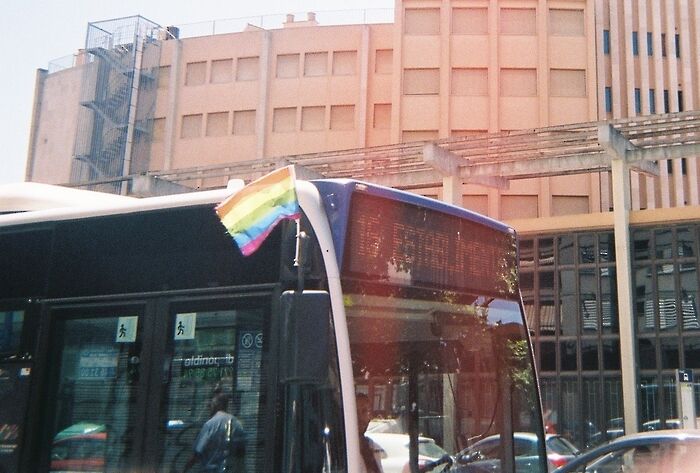Asexuality and me
An anonymous student shares how asexuality has impacted their life

Asexuality awareness week 2018 just finished on the 27th of October. Formally, asexuality, as opposed to allosexuality, is the lack of sexual attraction to other individuals. In practice, the phrase covers a large variety of individual experiences, from people physically repulsed by sex to people still engaging in sex despite their lack of sexual attraction.
For some, this awareness week was an occasion to learn something new about a topic they had probably never heard of before. For others, it was an opportunity to celebrate their identity and challenge popular notions of sexuality. But for me, the event just felt bittersweet: it’s a public reminder that, regardless of how much awareness is raised, I don’t fit in a world that will remain heavily centred on allosexual relationships.
What asexual people will often deal with is indifference and disbelief
I have always struggled with my asexuality. In fact, I have consistently found it much easier to deal with being gay than with being asexual. I was lucky enough to grow up in a progressive environment, where I had to face very little homophobia, and never in a violent form. When I came out as gay to my parents a little after my 20th birthday, it hardly came as a surprise to them and it didn’t affect our relationship in any way. Whether I will ever come out as asexual to them, and whether I will one day be comfortable enough with my asexuality to embrace it publicly, are harder questions to answer.
Allosexual people often find it hard to conceive of the hardships of asexuality. Asexual people don’t face discrimination in public; they don’t get randomly beat up or killed because of their (lack of) sexual orientation; they’re rarely, if ever, the victims of hate campaigns or slurs. What asexual people will often deal with, however, are indifference and disbelief, sometimes rejection – “how can you know you don’t like sex?”; “you just need to do it with the right person”; “you’re frigid”. Some of the worst situations include asexual people being coerced, or sometimes coercing themselves into having sex, in the belief that ‘it will fix them’ – but that probably says as much about issues of consent, boundaries and toxic masculinity as it does about asexuality itself.
LGBT+ spaces, like all other spaces, implicitly assume allosexuality from their members
What I personally struggle with the most regarding my asexuality is its impact on my mental health. This aspect is rarely talked about, even by asexuality activists – maybe because it’s a deeply personal topic that is difficult to generalise. See, despite my asexuality, I’m still a gay man: I’ve gotten with men, been in relationships with a few, and I have to navigate traditional gay environments on a regular basis. In this context, my asexuality has always been a burden.
Despite how tolerant or educated people might be, LGBT+ spaces, like all other spaces, implicitly assume allosexuality from their members. I know that my asexuality, if and when I announce it, will make me less desirable. My participation in these spaces is always underlaid with self-doubt and self-loathing: what if they think I’m a fraud once they realise I’m asexual? Should I tell them from the start? Should I try to have sex with them regardless? Can I hide my asexuality? Can I even be attractive to an allosexual person? Can I ever be loved for who I truly am? Why can’t I just be normal?
These recurrent thoughts led me to consider reaching out to a doctor to see if I could be ‘fixed’. Of course, I can’t; asexuality is not a medical condition, it’s an orientation. With time, these thoughts have made me increasingly unable to fix my own boundaries. The narrative has never been about how partners can adapt to my asexuality, but how I can adapt to my partners’ allosexuality: the more men I’ve been with, the more I’ve had to forcibly curb or hide my asexuality in order to fulfil my romantic desires. In this context, my brain tends to see asexuality as a defect more than a part of my identity – rather than something I should embrace, it’s something I need to suppress if I am to ever find a long-lasting relationship. This logic would seem to dictate that self-love comes not through self-acceptance, but through self-rejection.
Everything that I know and that I’ve learnt within LGBT+ spaces tells me I should learn to be comfortably with my asexuality, display it with pride. But when I see the effect that it’s had on my self-confidence, my feelings of loneliness and inadequacy, and my (in)ability to form meaningful romantic relationships, I can’t bring myself to it. As much as I know that I should accept myself the way I am, I keep desperately wishing I hadn’t been made asexual. I do not mean to give a damning image of asexuality; some asexual people are perfectly comfortable and proud of theirs. I just wish that when events such as the awareness week take place, I could actually be proud of my asexuality.
 News / Uni Scout and Guide Club affirms trans inclusion 12 December 2025
News / Uni Scout and Guide Club affirms trans inclusion 12 December 2025 News / Pembroke to convert listed office building into accom9 December 2025
News / Pembroke to convert listed office building into accom9 December 2025 Features / Searching for community in queer Cambridge10 December 2025
Features / Searching for community in queer Cambridge10 December 2025 News / Uni redundancy consultation ‘falls short of legal duties’, unions say6 December 2025
News / Uni redundancy consultation ‘falls short of legal duties’, unions say6 December 2025 News / Gov declares £31m bus investment for Cambridge8 December 2025
News / Gov declares £31m bus investment for Cambridge8 December 2025









